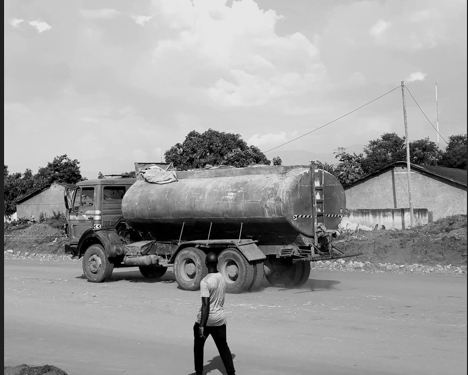Cape Town – The so-called “tanker mafia”, a criminal syndicate exploiting South Africa’s water crisis, has reportedly expanded from KwaZulu-Natal to other regions, particularly Gauteng, where water shortages are frequent.
These groups manipulate supply issues to secure tenders, inflate demand for water tankers, and profit at exorbitant prices. Some syndicates even go as far as sabotaging infrastructure and stealing essential components to prolong their contracts.
Speaking to Newzroom Afrika last week, Professor Richard Meissner from the University of South Africa (UNISA) raised concerns over the growing presence of these “water mafias.” He alleged that these criminal networks deliberately sabotage water infrastructure to create artificial shortages, allowing them to sell water at inflated prices.
In a revealing statement on March 27, Meissner detailed how these groups damage pipelines and other water delivery systems before stepping in with overpriced water tanker services.
According to Meissner, this has escalated into a highly organised criminal operation, worsening water access challenges across the country.
“They (water mafias) would steal, for instance, the transformer that supplies electricity to the pumping station so that the community would quickly run out of water and then an informal water market would step in and sell water at ridiculously inflated prices, for instance, 210 litres for R50,” he said.
A video clip shared by Newzroom Afrika captured Meissner describing how these syndicates infiltrate communities, cripple supply infrastructure, and secure contracts to provide water at exorbitant rates.
UNISA’s Prof. Richard Meissner alleges that “water mafias” cripple supply infrastructure in communities in order to get contracts to supply the resource at inflated prices. He says this has become an organised crime, with the supply of water tankers. @Karinda_J has more.
Watch:… pic.twitter.com/Tz4GwT4HAh
— Newzroom Afrika (@Newzroom405) March 27, 2025
“Over the years, it has become much more organised… If you can open a gap in the water supply chain, for you to step in to supply water tanker services, that’s how it works. In other words, you vandalise or sabotage the infrastructure that would then create a criminal syndicate to step in and they get the contracts from the municipality and then they sell the water at ridiculous prices to the community.”
The issue has sparked outrage among residents and government officials, who are calling for immediate action to prevent the continued manipulation of critical water resources.
Authorities are now under mounting pressure to crack down on these syndicates and ensure water remains accessible and affordable to all South Africans.
Last week, President Cyril Ramaphosa addressed the country’s water crisis, highlighting challenges such as aging infrastructure, vandalism, and organised criminal activity.
A widely shared post on social media underscored the severity of the issue:
These are domestic terrorists and should be dealt with accordingly.
New mafia taking over South Africa
“municipal officials and politicians were involved in shutting off water valves to create artificial demand for water tankers, which were then supplied at inflated costs”…— Albie Cilliers (@albie_cilliers) April 1, 2025
Speaking at the National Water and Sanitation Indaba, Ramaphosa acknowledged that the country remains far from achieving universal access to clean water and sanitation.
“We are still very much a long way off from achieving clean water and sanitation for all.
“Last year’s Water Summit identified ageing and poorly-maintained infrastructure, vandalism of water infrastructure, illegal connections, and organised crime in the water sector as some of the challenges facing service delivery,” the president said, as quoted by Daily Investor.
Beyond the tanker business, the criminal networks have reportedly expanded into wastewater systems.
Dr Sean Phillips, Director-General of the Department of Water and Sanitation, revealed that some water tanker mafias no longer need to damage municipal infrastructure — they simply tap into supply systems illegally.
These groups reportedly fill their tankers for free and resell the water at massive markups. In one case, a company charged R600 to R800 for a 5,000-litre tanker, despite the municipal cost being only R40 to R120, Phillips said.


